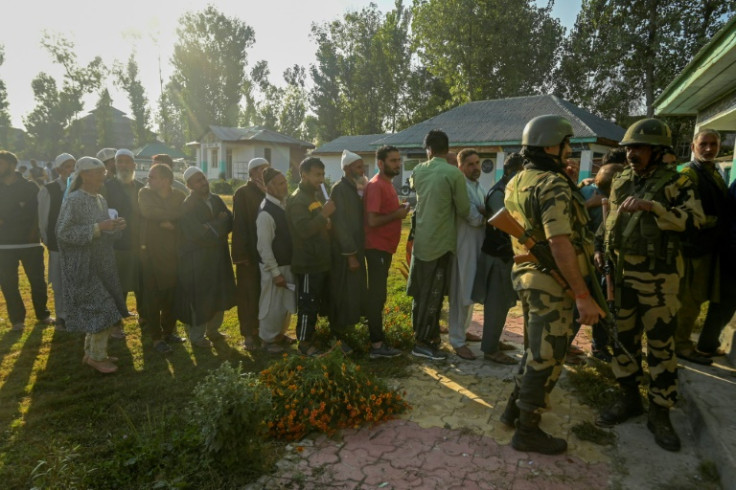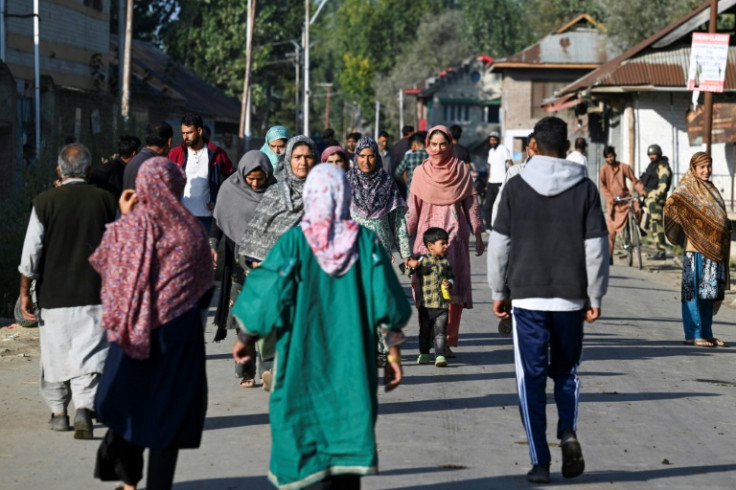
Indian-administered Kashmir was voting Tuesday in the third and final round of polls to elect its first government since the insurgency-wracked territory was brought under New Delhi's direct control.
Hindu-nationalist Prime Minister Narendra Modi's government cancelled Kashmir's partial autonomy in 2019, a sudden decision accompanied by mass arrests and a months-long communication blackout.
Since then the territory -- which is divided between India and Pakistan and claimed by both in full -- has not had an elected government, and has been ruled instead by a federally appointed governor.
More than half a million Indian troops are stationed around Kashmir and Tuesday's vote saw a heavy security presence, with rifle-toting soldiers seen guarding polling stations in Baramulla district.
A high unemployment rate and anger at the 2019 changes have animated campaigning, and local parties have promised to fight for the restoration of Kashmir's autonomy.
More than 55 percent of eligible voters cast ballots in the first two rounds of the poll.
Prior elections saw lower turnouts after boycotts called by separatist groups, who have waged a decades-long insurgency demanding Kashmir's independence or its merger with neighbouring Pakistan.
Tens of thousands of civilians, soldiers and rebels have been killed since the conflict began in 1989, including dozens this year.
Islamabad controls a smaller portion of the mountainous territory, divided since the end of British colonial rule in 1947.
Modi's Bharatiya Janata Party (BJP) says the 2019 changes to the territory's governance have delivered a new era of peace to Kashmir and rapid economic growth.
That is disputed by homegrown political parties in Kashmir, who say the accompanying security clampdown brought a drastic curtailment of civil liberties.
The territory, officially titled Jammu and Kashmir, is split.
One part is the overwhelmingly Muslim Kashmir Valley. Another is Hindu-majority Jammu district in the south, geographically divided from the rest of Kashmir by mountains.
Regardless of the outcome, key decisions about Kashmir's governance will remain in the hands of Delhi, where Modi's government can use its parliamentary majority to override any legislation passed by the 90-seat assembly.
Results will be announced on October 8.








